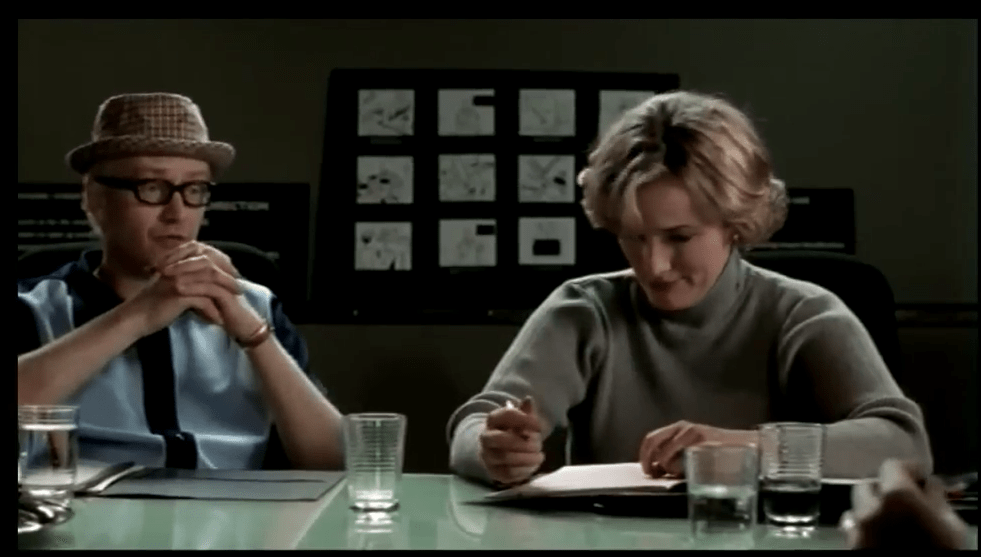There are a number of reasons marketers may want to select a new agency partner, but one of the more common is a perception that the agency is not delivering the quality of creative thinking that the marketer requires.
This is a difficult one because creative quality is subjective and open to wide interpretation. It can be due to a misalignment of expectations or culture or simply taste. It is quite a regular reason for a pitch given by the newly appointed marketing director or CMO.
But the other problem with the agency not delivering the desired ‘creative quality’ is that it leads to iteration after iteration of concept development which quickly eats into agency retainer or drives up agency fees.
This research was recently sent to me by Alan Kuczynski from Allsorts Habit Creation.
They looked at what were the most common factors to kill creative ideas and the top 12 included:
1. Sold poorly Internally
The client who has received the presentation, then has to sell it within their organisation. If they don’t have the understanding of the concept, lack passion and commitment, have poor presentation skills, or poor negotiation skills, the idea can die on the spot.
Solution: Help the client by ensuring that they clearly understand the reason for the idea and execution. Make sure that they take ownership of the idea and are champions of it, not just messengers. Offer to help them make the presentation internally.
2. Presenting to the Wrong Person
Very often the concept is presented not to the final decision maker, but to less experienced marketing and communications personnel, who make a subjective judgement based on their limited experience.
Solution: Don’t be scared to ask if you can present to the decision maker. Forge relationships at multiple levels. Know when and how to get to the right person. Sometimes it is necessary to lobby at various levels within the client’s organisation, obviously without getting the person you have presented to offside.
3. Poor Presentation Skills
The idea may be great. The execution may be brilliant. And it could be strategically on target. But if it is presented poorly, then there is a great chance of it not being accepted.
Solution: Train your staff to present in more engaging and persuasive ways. Think carefully about who should be part of the presentation team, and what role they should play. Don’t let egos get in the way.
4. Unable to Articulate the Idea
Having the skills to sell the IDEA is not the same as presentation skills or even general sales skills.
Solution: Train your staff to “think IDEAS”: recognise Ideas, discuss Ideas and sell Ideas. If your own people don’t grasp the essence of the idea, how it strategically and creatively addresses the brief, then how can the client be expected to?
5. Focus on the Execution
When clients can’t grasp the essence of the idea, they tend to focus on the detail. They may reject a concept because they don’t like part of the execution, not because they don’t like the idea.
Solution: Ensure they can differentiate between the two, and understand they can keep the idea but ask for a different execution.
6. Married to the Idea
Sometimes some within the agency feel “married” to an idea and struggle to break away from it. Inevitably, when the client rejects the creative because of the idea itself, instead of looking for other ideas, they try to fiddle with the original idea and force it to fit.
Solution: Understand that if the idea is the problem, and you haven’t been able to convince the client of its viability, then let it go and find another
7. Creative but not Strategic
The idea may be accepted in the agency’s internal review because of its creativity or even because of the power the Creative people wield. Everyone is shocked when the client rejects the idea for not meeting the brief.
Solution: Make sure that above everything else, the idea is strategically sound, and don’t get blinded by the excitement of the idea or the execution.
8. Subjective Evaluation
Often ideas are rejected with subjective comments like, “it doesn’t work for me” or “I don‘t like it.” You need to find ways to replace subjectivity with objectivity.
Solution: Agree on objective measurement criteria well before or during the briefing stage. Don’t leave it until you have come up with the concept. Sell “against” the criteria you have previously agreed.
9. What Client says is not what they Want
Clients often ask for something different, exciting and revolutionary. And when it’s presented to them, they shy away from it, and settle for something traditional and safe.
Solution: The person briefing you may not represent the culture of the organisation, but want to “revolutionise” things; yet have little chance of getting such ideas accepted. Understand the culture, personnel and internal politics within the client’s organisation. Develop and present “yes-able” creative work.
10. Agency Scares the Client
Often an agency’s presentation will start with something like… “We had a great time working on this brief. We’ve come up with something really creative and different. Seriously, this is going to blow you away!” It’s not what the client wants to hear.
Solution: Excite clients without scaring them. It’s their business – and their position – that’s at risk. Sell solutions to their marketing problems, not just the clever creativity.
11. Presenter is not Respected
Clients won’t buy from a presenter they don’t trust. It may be because of the presenter’s lack of experience, knowledge or position in the company. Or it may be a personality issue that has not been properly dealt with previously.
Solution: Make sure that the right person is presenting. And if there are any personality conflicts, think carefully about who should present.
12. Agency’s Track Record
Many clients are reluctant to agree with the agency’s recommendation simply because of history. If previous campaigns haven’t worked as well as they’d hoped, how can they be sure this one will?
Solution: Address any issues from the past that may hinder credibility and acceptance of the idea. And address them at the right time.
Do you recognise any or perhaps all of these causes of creative death? Or perhaps there are some that Alan and the team at Allsorts Habit Creation missed.
If you think of a better cause let me know here with a comment. Or even better, how have you ensured these don’t happen with your agency?





2 thoughts on “Poor creative? Don’t blame the client as often the agency kills the idea”
Good Advice for clients to read also. The only other tips I would offer is a simple rule that ‘he/she who approves the work, should also approve the brief’…helps avoid awkward and inefficient fallout from misalignment between senior and junior client.
Ben, that is excellent advice for marketers and one that is not often followed. We have often seen creative concepts and media plans reworked more than 20 times each because of lack of alignment or agreement on the brief internally within the marketing team. This leads leads to unnecessary iteration of strategy / concept development and burns head hours within the agency. Interestingly the same marketers are the ones that often end up complaining that their agencies are expensive.
Comments are closed.